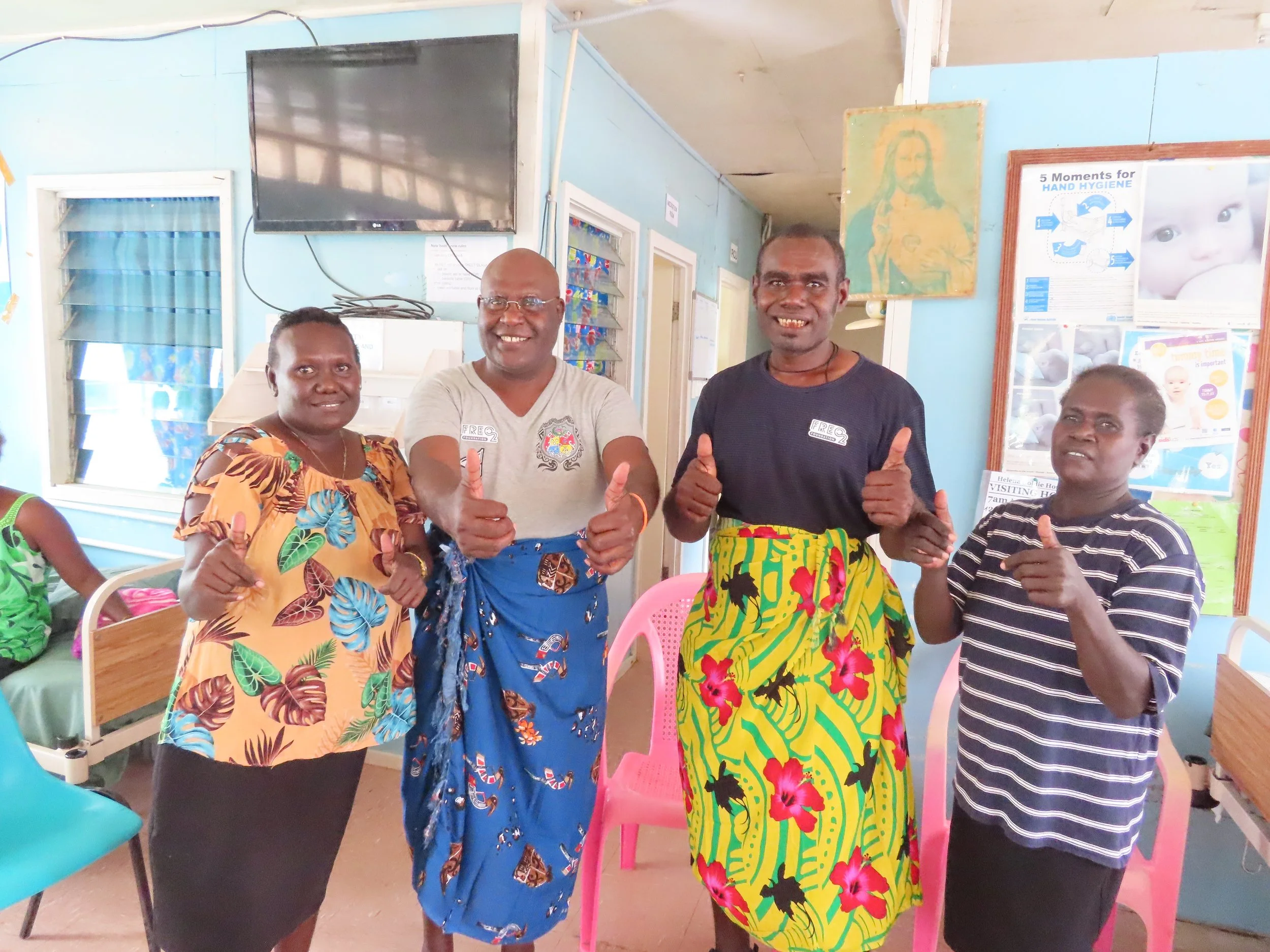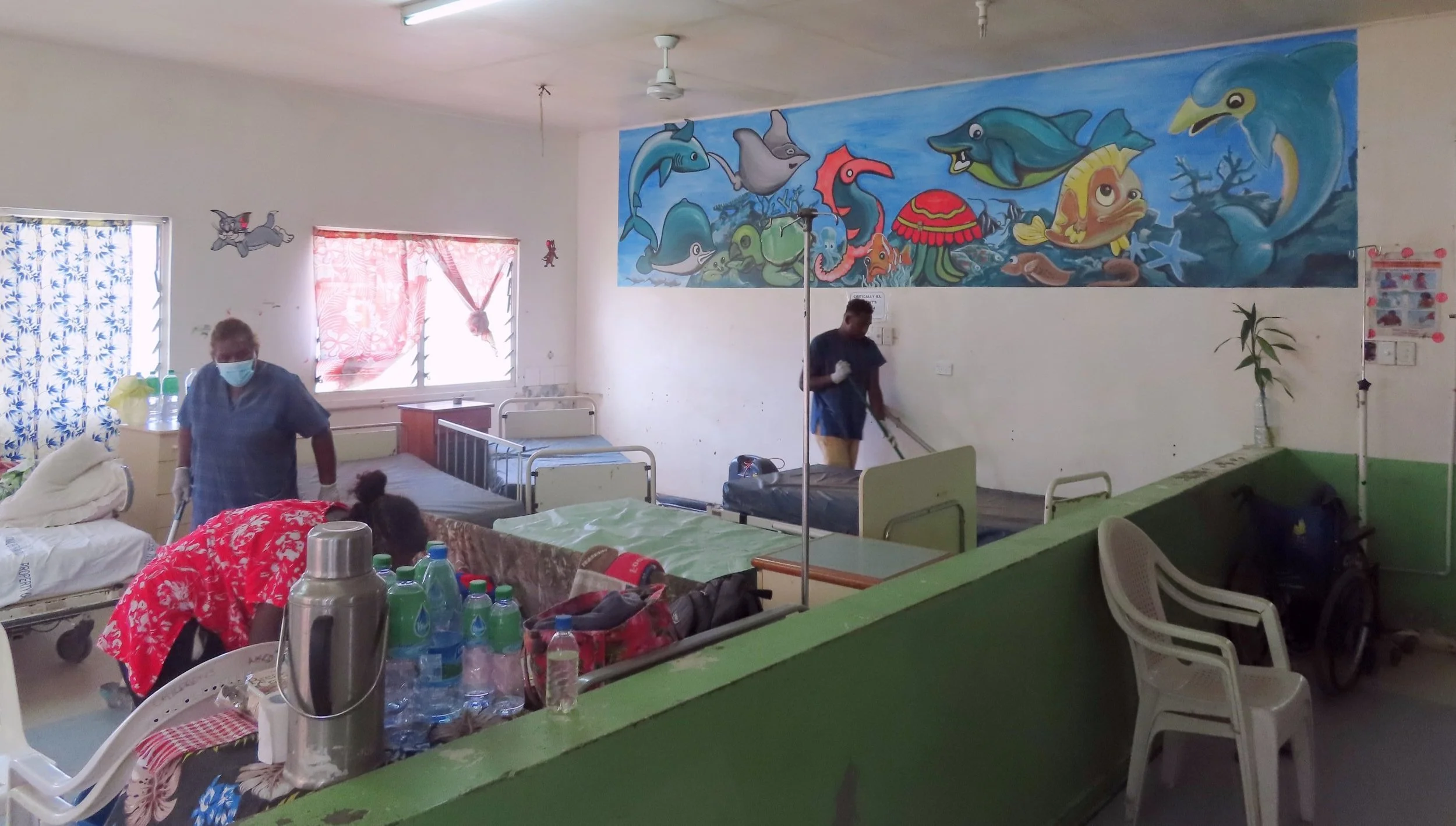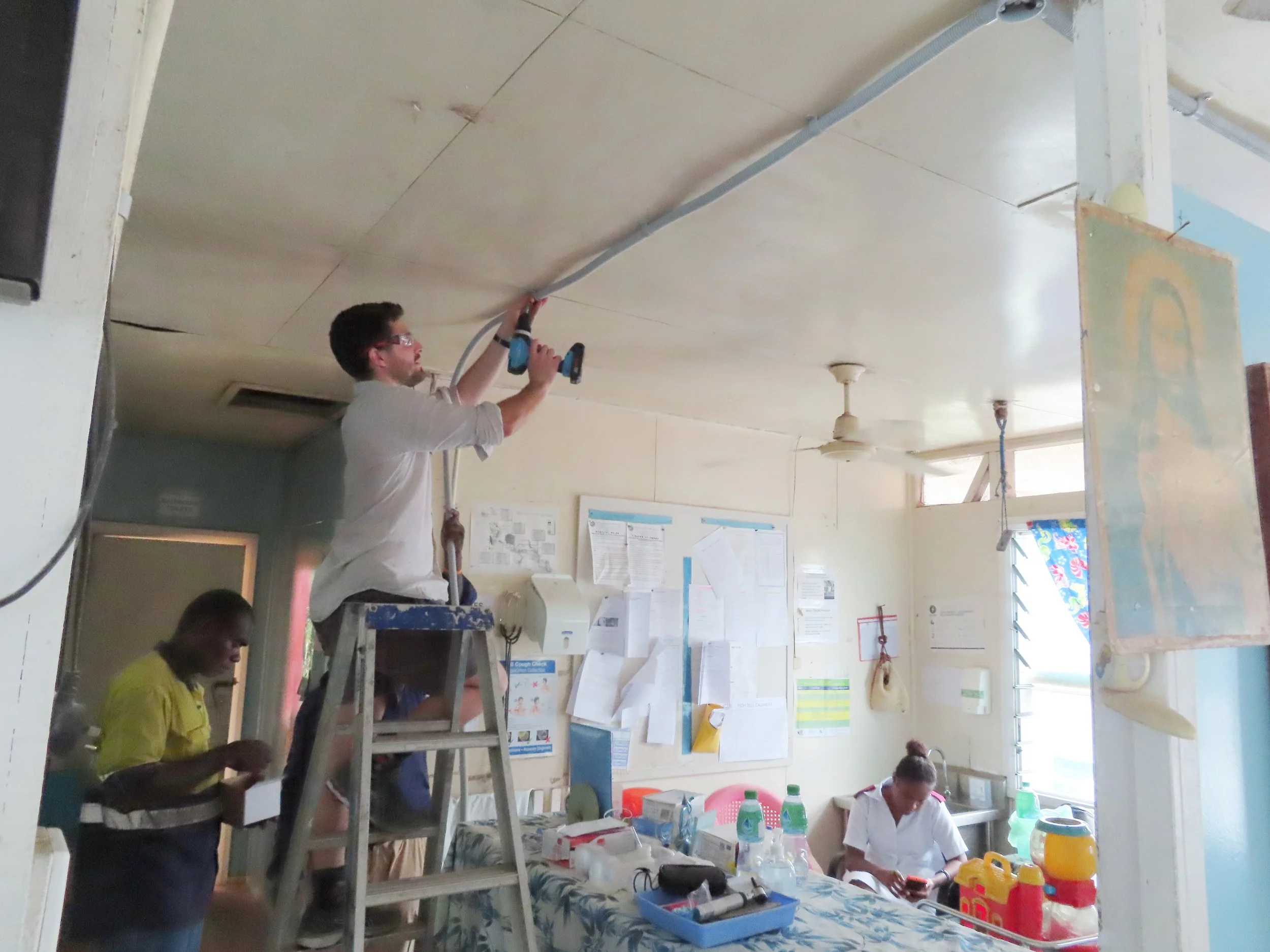The Show Must Go On
Sympathetic Installs; a key to maximising FREO2 system acceptance
By Matthew James, FREO2 Product Manager
For stakeholders with little or no experience of FREO2 Oxylink systems, the installation of oxygen systems can seem a potentially stressful undertaking for health centre staff, patients and their families. With this in mind, FREO2 approaches all our installations with a sympathetic mindset that takes into consideration the needs and well-being of everyone involved.
FREO2’s in-country teams are a core part of the capability needed for facilitating sympathetic system installations.
The process of installing the Oxylink systems begins well before our technical team is on-site and work is ready to begin. Health facilities are first assessed for the suitability of locations for key items in the installation, such as the ODS flowbox patient delivery points, location of the Oxylink concentrators, route of the distribution system, and any other necessary work required to optimise the system. This may require routing through walls, avoiding hazards such as heat or flame sources, and ensuring power points are suitably located for the system. This also allows FREO2 to ensure that the correct type and quantity of materials are available for the installation, avoiding the potential for delays and minimising disruption.
When site preparation and installation is ready to commence, a key consideration is to ensure that the process does not cause undue stress or difficulties to the ongoing provision of care within the health facility. This may mean scheduling the installation at a time that will cause the least disruption to patients and staff, such as during off-hours or during periods of low activity.
It's important to allow facility staff the time to relocate patients if necessary.
It is also important to involve staff in the planning and execution of the installation, as they are the ones who will be directly impacted by any changes or disruptions. Engaging staff in the process can help to alleviate any concerns or anxieties they may have and ensure that their needs are taken into account. This also means standing up a FREO2 team presence in-country, to bring our product team a local perspective and better facilitate communication, utilising local languages, cultural insights, and local networks.
Another important factor to consider is patient comfort and safety. The installation process should never interfere with patient care or put patients at risk of harm. This often means providing plenty of notice to staff on when different activities will be happening and how the installation will progress, to allow decisions to be made on whether re-locating patients is required. FREO2 also tailors our installation approach to suit the specific site requirements, sometimes to minimise the total time on-site, and sometimes to minimise the amount of time in specific areas of the installation. Whatever the approach, it is crucial to maintain a safe and hygienic environment for patients at all times during the installation, and to ensure that the FREO2 systems are functioning correctly before use.
Installation sites often include high traffic areas which need to remain clear and safe for staff, patients, and visitors alike.
The show must go on, FREO2 system installation must allow the continued operation of the health centre.
FREO2 installations can be in delicate in areas providing acute care treatment to neonatal patients.
Finally, communication is key. Keeping patients, staff, and other stakeholders informed about the installation process, potential disruptions, and any changes to normal procedures only helps to reduce anxiety and ensure a smooth transition.
Sympathetic installation of any health facility system requires careful planning, communication, and consideration of the needs of both staff and patients. By taking a collaborative and patient-centred approach, FREO2 ensure that our installation process is safe, efficient, and minimally disruptive to ongoing care provision, maximising the acceptance of our system and technical teams by users, staff, and health centre stakeholders alike.
Health facility staff are always eager to learn about the system, in order to best utilise in providing patient treatment.






